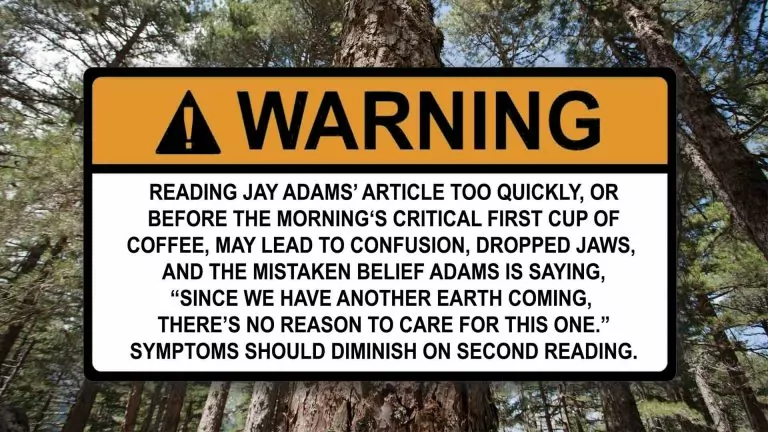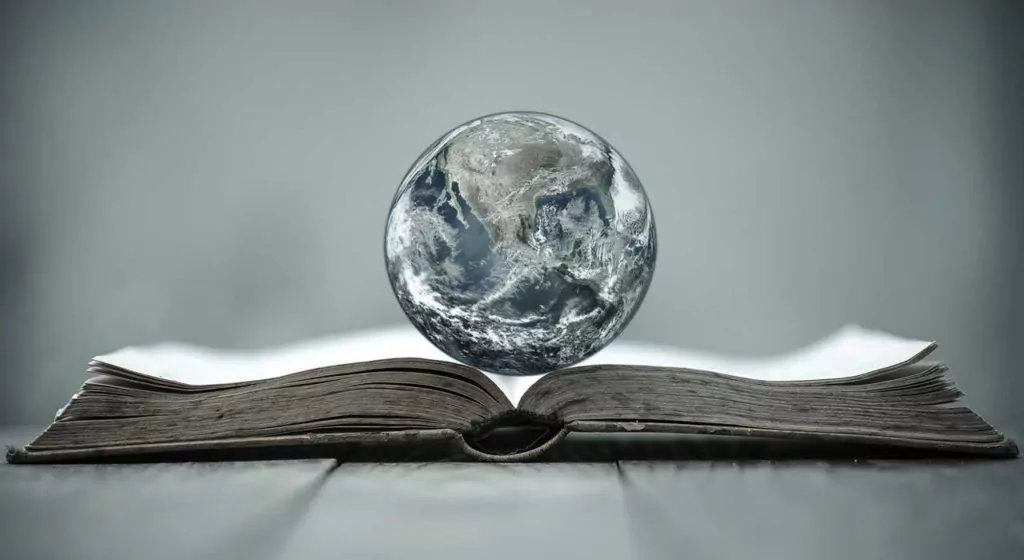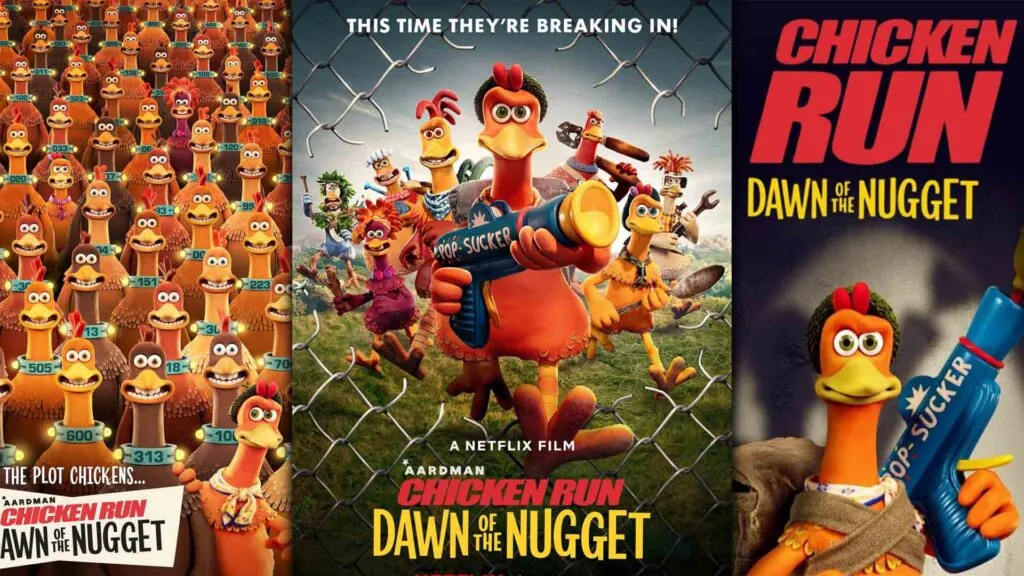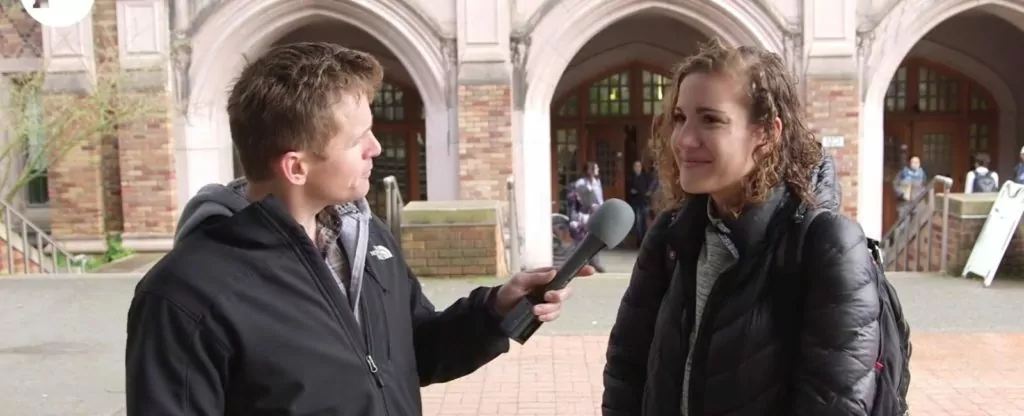Christians know there is another Earth coming
****
No intelligent and dedicated Christian wants to dispute the idea that we ought to be judicious about how we conduct ourselves with the planet that God has given us to inhabit and enjoy. Reasonable conservation is, of course, nothing more than good stewardship of those bounties. We applaud efforts at reforestation, preservation of Natural Wonders, and the like.
We shouldn’t think like the secular environmentalists
But our views of the earth ought to collide with those of the environmental extremists who are more concerned about snail darters than about the livelihood of hardworking farmers whose efforts to earn a living are impeded by them. As believers, therefore, it is important for us to consider what God, Himself, has said about the matter.
I want to suggest that, in passing, Paul makes an all-important statement in Colossians 2:22a that has been overlooked by many of our people. His words rest upon a worldview that simply is not shared by non-Christians. This dissimilarity in views leads to many of the differences that we find between ourselves and the environmentalists. Here are his words:
“These refer to things that are intended to be used up and perish.”
In the passage Paul is referring to “ascetic” injunctions concerning fasting, various uses of food, and so on, that unbelievers and Judaizers alike sought to impose upon Christians. Paul would have us refuse to follow them. So, in passing – as I indicated above – he says that the things that the world holds sacred, to the Christian, are but items that God has provided for our use.
This Earth isn’t meant to last
His point is that when they are “used up” that’s OK (assuming they were used in a responsible manner). It is no great tragedy to deplete the supply of fossil fuels, for a species of unusual fish to become extinct, or for the wolves to be banned from lands where they attack and destroy herds of cattle and sheep.
“But that is a tragedy,” says someone. “After all, once they are gone – “used up” as your apostle put it – they are gone forever. To lose an animal species or a rainforest is to have suffered an irreparable loss!”
Yes, in that objection, you detect quite a different philosophy of existence. Christians should expect outcries from environmentalists about oil drilling in the Arctic, logging in the West, the use of SUVs on our highways, and similar human activities that they believe will noticeably affect the environment. Such objections to these activities are perfectly in accord with the one-world view of the non-Christian. He would be inconsistent to his basic philosophy of existence if he didn’t raise an outcry.
“What, then, are you saying,” asks a Christian?
No need to cling
Simply this. The unbeliever has but one world. He knows nothing of another world to come. He clings to every aspect of the present world‘s assets because, as he believes, once they “perish” they are gone forever. No wonder he is goes to lengths to preserve all that he can.
But the Christian looks forward to a new heavens and a new earth that will be so far superior to the present one that he cannot stake everything on what now exists. He looks on the present world as a marvelous creation, in which God had provided all things for us to use and enjoy now – insofar as we can since it is under the curse of sin. Because of that curse, however, nothing will remain forever. Indeed, the book of Ecclesiastes was written to point out that nothing is permanent. And, in that book, like Paul, Solomon tells us to enjoy what we can so long as we are here and the deteriorating world in which we live continues as it is. The clash in opinions that occurs over various environmental issues is, in reality, a clash of a one-world and a two-world view of existence.
Dr. Adams has written more than 100 books, on a variety of subjects. This article was originally posted on the Institute for Nouthetic Studies’ blog (www.nouthetic.org/blog) and is reprinted here with permission.
Sidebar: Prioritizing the living over the hypothetical
by Jon Dykstra
Atheists have no future hope – no eternity to look forward to – so they are desperate to hold onto what they have now. That’s true for the unbelieving environmentalist, and equally so for the unbelieving health food fanatic: one is worried about the planet, the other his own well-being, but in both cases they are willing to go to extremes to preserve what they have because it is all that they have.
A Christian knows better. We know that while life is precious and death is an enemy to be fought, we have another life coming. So we take good care of the body God has given us – we eat healthy and exercise when we can – but we don’t obsess about eliminating every last kettle chip from our diet, or worry about whether we’re getting enough of the latest superfood. We need to be good stewards of what God has given us, and that includes our life, but we don’t need to cling desperately to it.
When it comes to our planet, Christians know that not only is another Earth coming, there is a chance it might come very soon. The unbeliever thinks this is it and there ain’t no more, so he’s willing to impose huge burdens on this world’s present population in the faint hope it will extend the Earth’s best before date.
But what about the good that money could do right now?
Consider this: if we knew the world was going to end in a decade – let’s say scientists saw a gigantic planet-killing comet on the way – would we spend trillions in the hope of making the planet a cooler place in 100 years? No, of course not. Then the choice would be obvious and even the unbeliever would want to spend those trillions on helping people right now. Well, we don’t know when the Christ is going to return, but we know it could happen any time. When we are weighing the needs of people today vs. the needs of people in the future, Christians need to place a very important and clarifying modifier before those future folk: we need to understand they are “hypothetical.” Jesus could come back tomorrow; we don’t know if there will still be children being born in one hundred years.
Now, regardless of whether Christ returns this century or not, prioritizing the needs of real people over potential people is the right idea. That doesn’t mean have no thought for tomorrow. It does mean the future is uncertain, and we don’t know what it brings. What we do know for certain is that there are millions of children today who are living in poverty, and dying from hunger and preventable sickness. If we seek to “save the future” by, for example, adopting carbon taxes to combat global warming, then we will make oil and gas more expensive, and that will increase the cost of food, shelter, medicine and more for the world’s poor. We will hypothetically help the hypothetical populations of the future by actually hurting the actual poor of today.
The point I’m arguing for here is a limited one. It could be caricatured as, rape and pillage the earth today, and who cares about the consequences for future generations, but that’s not what I’m saying. I’m trying to counter a future-minded approach that wants to preserve the planet and does so by hurting the poorest today. But if that’s the tradeoff – if it has to come down to hurting people today, or risking doing so to hypothetical populations of the future, then we should be standing up for the living, breathing, suffering, actual people of today even at an uncertain cost for the future.












